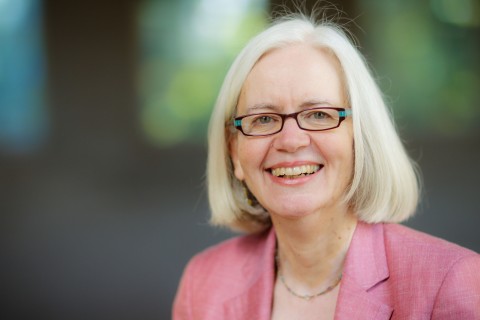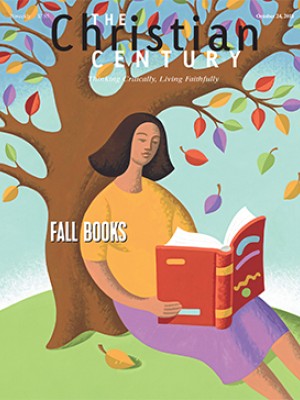New Testament and preaching scholar Gail O’Day dies at age 63
O’Day was known for her integrity in biblical interpretation.

Gail R. O’Day, a New Testament and preaching scholar known especially for her writings on the Gospel of John, died September 22 at age 63.
Though she was diagnosed with a brain tumor three years ago, she remained dean and professor at Wake Forest University School of Divinity until stepping down June 30, the school wrote. In her tenure she developed two professional programs, Clergy Making a Place: Early Career Pastors as Generative Community Leaders, and the Food, Health, and Ecological Well-Being Program, which the school believes to be the first of its kind in the United States.
Jill Crainshaw, interim dean, noted in the school’s tribute that O’Day was an avid mountain climber, with that perseverance showing up in her career also.
“Gail was fierce and passionate in her devotion to theological education, gospel proclamation, and ministry,” Crainshaw said. “She has journeyed far in her career and life and her feet have brought gospel news to many people and places in many different ways.”
Read our latest issue or browse back issues.
Among the books she authored were a commentary on the Gospel of John in The New Interpreter’s Bible (1996), and The Word Disclosed: Preaching the Gospel of John (2002). She co-authored Preaching the Revised Common Lectionary: A Guide (2007) and was general editor of the Journal of Biblical Literature.
She was ordained in the United Church of Christ and previously taught at Hamilton College, Eden Theological Seminary, and Emory University’s Candler School of Theology, where she was also a dean.
Karoline M. Lewis, professor of biblical preaching at Luther Seminary, who studied under O’Day at Candler, remembered her as a feminist scholar with “a fierce integrity of biblical interpretation, an unwavering commitment to biblical preaching,” and “a love of the Gospel of John, a love that was never just an academic interest but an embodied response to the love of God known in the Word becoming flesh.”
In a 1996 article in the Christian Century, “Probing an inclusive scripture,” O’Day looked at what is lost and gained when metaphorical language for God is changed to avoid gender-specific words whenever possible. She agreed with editors of an inclusive version of the New Testament that “the vitality and dynamism inherent in the Father metaphor has been lost in the life of the church.”
Yet, exploring examples from the Gospel of John, she noted that while avoiding “Father” and “Son” addresses some problems, it creates others.
“Problems of patriarchy are not resolved by the construct ‘Father-Mother’” in translation, she wrote. “In seeking to eliminate any possibility of taking the maleness of the Father literally, the sense of family and intimacy is lost. . . . The separate biblical images of God as father and God as mother are robbed of their distinctive contributions to the theological conversation.”
A version of this article, which was edited October 5, appears in the print edition under the title “People: Gail R. O’Day.”
Editor's note: Logged-in magazine subscribers can search for articles from before 1998 via the EBSCOhost platform on our archives page, found on the left side after scrolling down.






